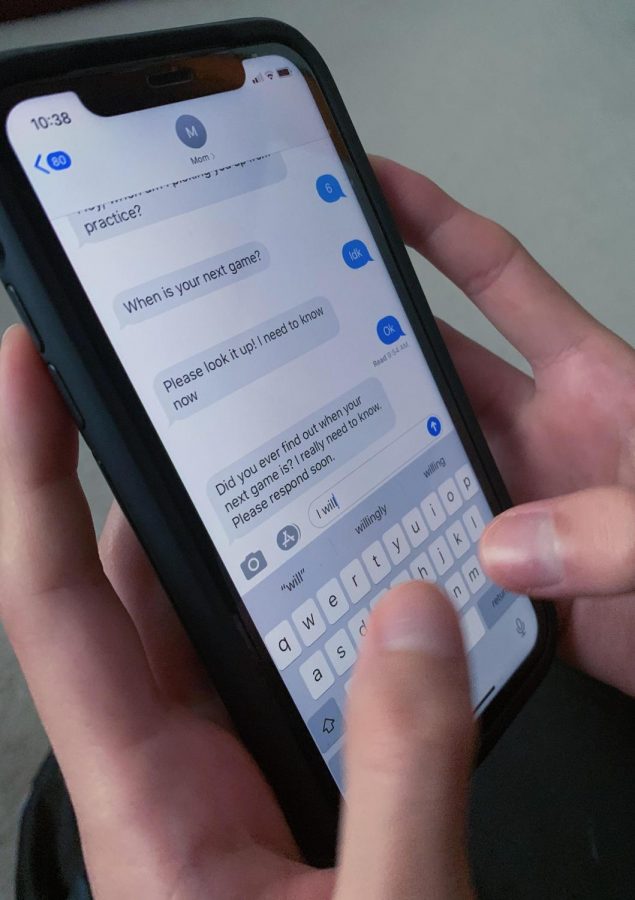Reflecting on texting
Differences between how parents and teen communicate over text
Photo by Ruby Lueras
A representation on the differences of a teen texting their parent. Teens often respond with shorter texts, or sometimes don’t even respond at all.
Before social distancing rules, parents and teens were often apart for hours at a time. Whether at school, practices or just hanging out with friends, it was important for parents and teens to communicate to update each other on their busy schedules and lives. While phones can be used for games, scrolling through posts, and doing a quick google search, the main function of a phone has always been communication. So how does texting vary between a generation who grew up on this technology compared to a generation who did not?
“My friends and I rarely use punctuation, but my dad is constantly using commas and even semicolons,” Greta Francis, junior, said. “It is way more formal with adults, and it’s hard to go from texting sarcastically with friends to writing a novel for your parents.”
Teenagers typically do not take the time to type everything out, and frequently use abbreviations in order to get the meaning across. However, older generations are different, according to Francis.
“They really don’t use abbreviations at all. If they do it’s to make fun of us. If my mom has to leave the room she will say ‘brb’ out loud just to make everyone laugh,” Francis said. “I think they would rather take the time to type it all out.”
For Amy Pine, Library Media Specialist, there are not too many differences between how she and her teenage daughter text. The biggest, most obvious, difference to her is “response etiquette.”
“I always respond in a timely fashion, and my daughter only responds if the text absolutely warrants a response. For example, if I ask her a question, she answers. If I text her that I’m picking her up from school at a certain time, she doesn’t usually respond because she got the info she needed. No further communication is necessary, whereas if I was on the receiving end of that text, I would have responded with something like ‘Thanks. See you then.’”
Despite these apparent differences, the ability to communicate is still very important to all generations, says Pine.
“My daughter and I actually don’t text much differently, but I think it’s so important to talk over any miscommunications that may happen,” Pine said. “Although we do text a lot, it’s always better to talk in person.”

As a senior, this will be Ruby's third year on staff and first year as LZ Life Editor. When Ruby is not in the journalism room you can find her running...

